Written by Scott Wilson

Gotham has always been a magnet for people around the world searching for a chance at a better life. The welcome sign is printed right on our front door…
Give me your tired, your poor,
Your huddled masses yearning to breathe free,
The wretched refuse of your teeming shore.
Send these, the homeless, tempest-test to me,
I lift my lamp beside the golden door!~ Emma Lazarus, The New Colossus
New York has been the epicenter of social activism for over 350 years, expressed through art, politics, music, and hands-on help for the people here who need it most.
That’s a heritage that’s hard to match in social work practice anywhere in the world. And it makes earning a social work degree here a chance to take your own turn on the front lines of social justice.
New York Social Worker Degree Options at Every Level
For more than 125 years, social workers have been the New Yorkers keeping that lamp lit and the door open.
They’ve done it with a burning drive to help that comes from seeing and experiencing social injustice and inequity firsthand. If you came of age watching protesters march after Eric Garner’s murder, you were watching social workers creating the Black Lives Matter movement to completely reform American policing. Whether you listen to hip-hop or jazz, you’re hearing the roots of urban protest and empowerment coming up from the streets as a cry for justice.

Social work degrees teach the art of connecting with individuals from any culture and background, and provide an understanding of the historical context and social factors that impact people’s lives and fortunes.
When it comes to diverse cultural backgrounds, New York stands alone, with 800 languages spoken here and the largest foreign-born population on the planet.
As one of the most critical areas of study within the larger field of human services, social work offers a unique perspective on solving big, systemic problems that negatively impact people’s lives. Humans are social creatures. Only by looking at the connections we have and our positions within that social construct is it possible to develop lasting solutions to serious problems.
Social workers come out of these programs uniquely equipped to take on both sides of difficult issues. They learn how to manage the mundane plight of, say, people who have fallen behind on student loans. But they are also equipped to engage with the larger problems of skyrocketing college costs and predatory loan programs that ballooned that debt in the first place.
These capabilities come through a combination of instruction that includes:
- A traditional humanities education that builds appreciation and understanding for the human condition
- The science of psychology and clinical counseling techniques
- History, sociology, political science, and socioeconomic studies
- Cultural perspectives and engagement
There’s nowhere better to study these things than in the state that put social work education on the map.Bachelor of Social Work (BSW) Degree and Associate-Level Options Available Online and at New York Campus Locations

Degrees in social work come at every level in American colleges today. For reasons that relate to both professional standards and state licensure, however, it’s the Bachelor of Social Work (BSW) and Master of Social Work (MSW) that should be on your radar.
Associate in Social Work degrees can help get you to a BSW. These are two-year entry-level programs that give you the basics of both human services and a solid start on liberal arts education. These are also known as transfer degrees, since they are most often used to cover the first two years of a full four-year bachelor’s program in social work. In the field of social work, an advanced degree is the ticket to becoming licensed, so the main function of an associate degree is to get you started down that path at a cost you can afford.
Bachelor of Social Work (BSW) degrees are four-year undergraduate programs that deliver a well-rounded general college education together with the specific foundations needed at the graduate level. Most non-clinical, unlicensed social work positions in New York are open to bachelor’s graduates. The most important role for this level of degree, however, is to prepare for you for the master’s degree needed for licensing.
A BSW from an accredited school is a sure bet to cut your master’s program down to as little as one-year by giving you access to advanced-standing MSW programs. That equals time and tuition dollars saved.
Online Social Work Graduate Degree Options and Campus-Based Programs in New York
Master of Social Work (MSW) degrees are two-year graduate programs that offer the specific advanced coursework and practical experience needed to become licensed as an LMSW (Licensed Master Social Worker) in New York state. If you choose to go a step further, your MSW combined with additional experience, will qualify you for the highest level of licensure available in New York — LCSW (Licensed Clinical Social Worker). MSW degrees deliver the training necessary to provide direct clinical counseling to patients in every area of social work practice, and the leadership skills to make a difference in communities large and small.
Advanced Standing Master of Social Work degrees are a one-year variation on the standard MSW that are only open to BSW graduates. With a CSWE-accredited BSW, most schools of social work will allow advanced standing students to skip the first year of study at the master’s level. This means getting qualified for licensure faster and for less money. Otherwise, advanced standing MSW programs provide exactly the same quality of education and qualification as a standard MSW.
Doctor of Social Work (DSW) and PhD degrees represent the highest level of study you can climb to in the field. With two to four years of advanced study, research, and instruction, these equip graduates to take on the toughest clinical counseling cases, lead non-profit and social services organizations, or to become professors teaching the next generation of social workers.
Many social work professionals climb through these degrees like a ladder. The typical New Yorker bound for a social work career isn’t coming from a wealthy background. So starting small and working your way up, making use of the common ability to transfer credits from level to level, is a time-honored New York social work educational tradition.
Post-Degree Certificates in Social Work are another way to get college training in social work topics. Lasting less than a year, they are mostly used to get specialized knowledge and skills after you’ve already earned a degree. While they don’t play a role in getting licensed as a clinical social worker, they can be key in getting the continuing education needed to keep that license current later in your career.
Why You Need to Look Out for CSWE Accreditation When Choosing Your Social Work Degree

Key to your journey to clinical social work licensing in New York will be picking schools that hold the appropriate specialty accreditation from the Council on Social Work Education (CSWE).
CSWE evaluates only BSW and MSW programs. Those, however, are the most critical for licensure as an LMSW or LCSW. Graduating from a CSWE-accredited bachelor’s program allows BSW holders to qualify for advanced-standing MSW programs, and graduating from a CSWE-accredited MSW allows graduates to apply for a clinical practice license.
While accreditation isn’t a feature for associate programs, you’ll want to find out ahead of time whether or not the credits earned in that AA you might be looking at transfer to a CSWE-accredited BSW program.
CSWE doesn’t accredit doctoral programs either, but that’s because they don’t really need it—most are offered by the same schools that deliver MSWs, with the same faculty and quality of education. And with certificates, any program accepted for state continuing education is also going to be a proven quality program.
Looking at the Curriculum in New York Social Work Degree Programs
An education in social work is an education in humanity that takes in the good and the bad. Studying social work makes you part of a movement that has arced through history.
Your experiences as a student will be your own, but your ideas and knowledge, both as a student and in your professional life, will be shaped by the classes you study along the way.
You’re in luck when it comes to getting a first-rate education in social justice and clinical practice in New York. The state is home to the oldest schools of social work in the nation. They have had plenty of time to figure out how to transfer knowledge while keeping the spirit of engaged young students aflame. And they draw some of the top professors in the field to help pass that knowledge along.
Core Concepts in Social Work Come through at Every Degree Level From New York Schools

Those professors will teach you about the core pieces of the social work puzzle:
- Human Behavior in the Social Environment
- Social Welfare Programs and Policies
- Group and Individual Clinical Counseling
Of course, these general subjects get different treatment at different degree levels. Associate and bachelor’s degrees give you a more introductory experience, while master’s and doctoral studies will dive into the more advanced theory and applications.
Since the different levels of degree serve different purposes in the overall educational track, they also have a different curriculum structure around the core subjects.
For undergraduate studies, this means a standard helping of the general liberal arts education that makes American college degrees the standard for professional roles in every industry. These humanities courses in history, language, social studies, sciences, and the arts are particularly important for social workers. They deliver a broad understanding of culture, the arc of history, and the social compact we all live within.
For graduate students, the extra coursework leans into areas of research and specialization. Your coursework will be all about teaching you to be an informed evaluator, master of resources, and policy expert in human services. These are also frequently seminar style, taught in small groups with a lot of discussion and interaction with the instructor.
Other courses walk you through final projects, either a capstone or thesis/dissertation that will showcase what you accomplished through advanced study.
What Ever Happened to Ethics in Social Work Education?
 You’ll probably notice, as you look over curriculum plans, that few advanced-standing social work master’s programs in New York come with any ethics or professional development training.
You’ll probably notice, as you look over curriculum plans, that few advanced-standing social work master’s programs in New York come with any ethics or professional development training.
That’s not because ethics takes a back seat for advanced standing students. Instead, it’s because a fully accredited BSW program will cover those subjects in detail before you even enter your MSW programs.
New York’s social work education scene is known for setting the trend, and you’re seeing what that means. That trend is to embrace a more holistic style of instruction in advanced practice social work studies. That means classes that are less specifically focused… you’ll see many vaguely titled seminars, courses in field instruction, or systems theory classes.
That doesn’t mean these subjects aren’t covered in-depth, just that they are wrapped together in the context of actual practice. Your instruction will put together clinical, historical, ethical, and cultural considerations all in one… just like it happens out in the real world.
Opportunities To Specialize with Concentrations Tailored to the Needs of New York
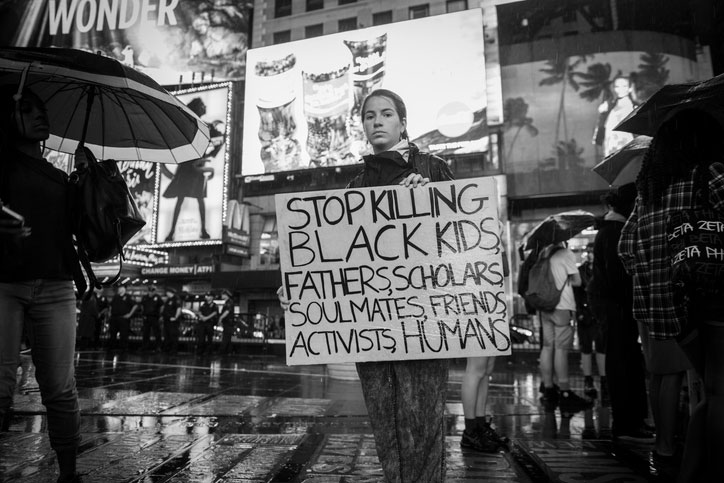
There are eleven areas of social work specialization recognized by the National Association of Social Workers (NASW), but even that comes up short when you consider the various combinations of social issues, cultures, and unique populations that social workers engage with, especially in New York.
So almost all social workers pick a concentration area with their degree, particularly at the master’s level. That can be a focus on a specific population, such as family, youth, and children’s services. It can also be a focus on a particular kind of practice, like a focus on policy or contemporary social issues, or even diving into a particular treatment modality, like dialectical behavior therapy.
These specialty areas drive your elective coursework and often your practicum and internships placements. They will help define the course of your career as you develop expertise in your chosen area of practice.
There’s no better place to pick up these focused areas of study than in New York. With legendary social work professors and schools, the depth and variety of opportunities are off the charts here. Want to explore hip-hop therapy in the South Bronx to help high schoolers better express their stress? You got it. Want to dig into the latest research and advocacy work to counter police violence? Try studying with some of the people who brought a $13 million lawsuit against NYPD over the BLM protests… and won.
Online Social Work Degree Programs Are Open at Every Level in New York
You’ll find online options available at every level of study for social work degrees in New York.
While remote education really took off during the COVID-19 pandemic, it’s a tool that many schools of social work have been honing for years now. Today, it’s every bit the equal to traditional on-campus training, and it comes with advantages that no traditional program can beat.
One of the biggest advantages for social work students in New York is the ability to attend world-class social work programs from the biggest melting pot in the world without having to take on those NYC prices for room and board.
Whether you are staying home upstate or halfway across the country, online programs give you all the benefits of studying social work in the big, urban centers without big urban prices.
That also speaks to the diversity of options that online studies open up. Wherever you are, more choices for schools offer a better chance at finding the perfect fit in specialization, research focus, or rock star instructors.
Finally, the asynchronous style in which most online degrees are delivered keeps the disruption of school to a minimum. Whether you’re working your way through school or busy taking care of family obligations, these degrees let you fit your education around your obligations.
Street-Level Experience Is a Key Part of New York Social Work Degrees
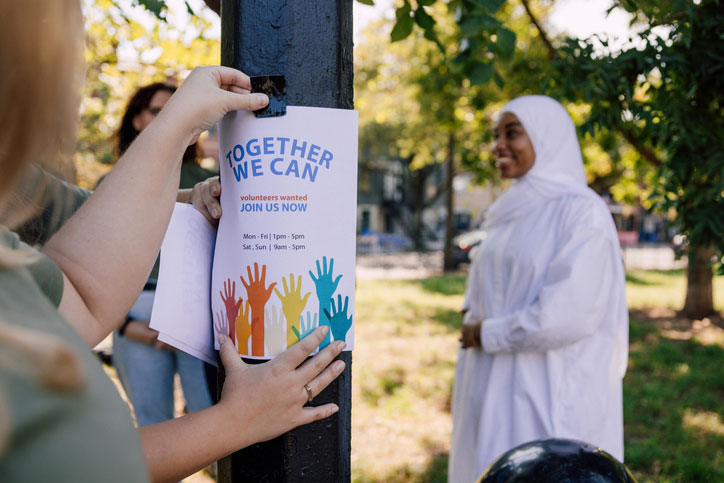
One thing that is never fully remote, of course, is the experiential part of your degree.
Experiential learning is a big deal in social work. You can study all the theory you want, but until you spend the day knocking on doors in a dark urban tenement, checking on people sleeping in alleys, or engaging in home visits with kids stuck in the endless loop of the Office of Children and Family Services foster system, you won’t really understand the plight and the challenge.
Experiential studies are so important that even many of the two-year associate programs in the state offer some kind of internship opportunity to help get hands-on experience.
Practicum Placements
Practicum placements are integrated courses that are a part of your curriculum. They tend to be relatively short placements and are overseen both by your regular instructors and by agency staff on site. You may be more of an observer than a participant, but they are valuable first-hand experiences that let you interrogate and integrate your theoretical instruction with your understanding of real-world social work practice.
Internship Opportunities
Internship opportunities are more detached placements that may be longer and have more flexibility than practicum classes. In these, you function more as a direct employee at the agency and will fall more directly under the supervision of staff. Some internships are even paid. These give you a greater opportunity to try out social work practice on your own and develop your personal style.
Particularly in lower level programs, you typically get a variety of different placements to help you get a feel for areas where you might want to eventually focus. In more advanced degrees, expect to spend more time in the area of your specialty, honing your skills for real-world practice.
Connecting Education to Your Livelihood: Standard Social Work Degree Requirements at New York Social Services Agencies
You’ll find jobs available at every level of human services and social work practice with the right degree. New York is a huge and varied state, with tremendous demand for every kind of social worker at every skill level.
In broad strokes, it’s convenient to look at social work roles as falling into the four general categories that the Bureau of Labor Statistics uses to track employment levels:
- Child, family, and school social workers
- Healthcare social workers
- Mental health and substance abuse social workers
- All other social workers
Your degree will have a lot to do with what kind of social work job you can fill after graduation.
Of course, most master’s graduates are heading toward state licensure— LMSW or LCSW. Those jobs are frequently titled just exactly that—Licensed Clinical Social Worker or Licensed Master Social Worker. But they may also turn up as positions like:
- Counseling Services Coordinator
- Central Intake Licensed Clinician
- Community Integration Counselor
- Outpatient Primary Therapist
- Case Manager
But even undergraduate degrees allow you to get into important social work roles. A bachelor or associate degree can qualify you for positions such as:
- Recreational Coordinator
- Sociotherapist
- Credentialed Alcoholism and Substance Abuse Counselor (CASAC)
- Housing Case Manager
- Family Support Worker
- Child Advocate
- Life Skills Instructor
Social Workers Have Always Gone to Where the Troubles Are
 The prototype of the modern social worker emerged in the 1860s in the form of the friendly visitors. Charitable societies, emerging in response to the poverty that came with industrialization, sponsored upper class volunteers to evaluate relief applications, interview families, and take an interest in neighborhoods where assistance was needed.
The prototype of the modern social worker emerged in the 1860s in the form of the friendly visitors. Charitable societies, emerging in response to the poverty that came with industrialization, sponsored upper class volunteers to evaluate relief applications, interview families, and take an interest in neighborhoods where assistance was needed.
The friendly visitors were a stop-gap, but they were on the right track. In 1877, the American Charity Organization Society was founded in Buffalo to pursue charitable relief along rational, scientific principles. You’ll recognize some of their emphasis on research, environmental factors, and public health advocacy in the structure of the modern social services system.
And, believe it or not, there are still jobs for friendly visitors in New York. The NYC Department for Aging funds a volunteer program called Friendly Visiting that sends participants out to sit and visit with older adults who are otherwise isolated from society. There are even programs specific to different boroughs, so older folks in, say, Flatbush can engage with someone with similar roots.
Whether you are running such a program or working as the modern friendly visitor equivalent, you will find the threads that tie the origins of New York social work to modern practice are fully intact. The roles make just as much difference in lives today as they did a century ago.
Doctoral degrees are mostly used for positions in research or academia. However, some PhD, and particularly DSW grads can find themselves in senior leadership roles in social services organizations.
There’s also a strong tradition of entrepreneurial social work in New York. With funding sources always right around the corner, social work graduates with bright ideas work with nonprofits to pilot everything from game-based early childhood assessment programs to new approaches to networking primary care practices with community-based organizations for more accessible healthcare.
As you could probably guess, different positions bring different levels of compensation. You can find all the details on our New York social workers salary page.
All of these jobs and the degrees that lead to them have one thing in common, though: they help keep the door open and the lamp lit, showing the way to a better life for the people of New York.
Social Work Degrees by County in New York
New York City has no shortage of colleges and universities offering CSWE-accredited BSW and MSW programs throughout these select eight counties:
Social Work Degrees in Albany County
Social Work Degrees in Erie County
Social Work Degrees in Monroe County
Social Work Degrees in Nassau County
Social Work Degrees in Onondaga County
Social Work Degrees in Rockland County
Social Work Degrees in Suffolk County
Social Work Degrees in Westchester County
Social Work Degrees in Albany County

From healthcare organizations to substance abuse treatment facilities to major nonprofits aimed at solving homelessness and food insecurity, there’s no shortage of opportunities to put an education in social work to good use in Albany County. And in some instances, those opportunities exist in new and innovate harm reduction roles.
For example, as of 2024, the Albany Police Department is making plans to bring BSW and MSW-prepared social workers into the fold. Part of the 2021 Albany Policing Reform and Reinvention Collaboration report, which examined the value of integrating social service interventions into its police reform efforts, is a new program that will rely on well-trained and thoroughly vetted New York social workers. It will reflect a “cultural change within the department,” said Chief Eric Hawkins.
With a goal of staffing all police stations with social workers around-the-clock seven days a week, the APD hopes to handle domestic situations more effectively and efficiently. The department has already begun recruiting social workers who will act as points of contact for people in crisis, freeing up police officers to focus on public protection efforts.
Programs like this continue to reflect the growing value of social workers even outside of conventional roles and the growing need for qualified individuals to become part of the county’s social services workforce. It all starts by earning a BSW or MSW degree.
The Social Work Profession Begins with a Passion for Helping Others… and a CSWE-Accredited BSW or MSW
Throughout Albany County, social workers are effecting real change in the lives of everyday people. They blend advocacy, activism, and a deep understanding of the socioeconomic challenges that people face every day with the good ‘ol fashioned pavement-pounding work ethic it takes to help the most vulnerable populations access the resources they need.
Not all of that work necessarily requires earning a New York State social work license, but it does always require a focused education. So for many, that means earning a Bachelor of Social Work (BSW) at one of the premier schools of social work around New York State or right here in Albany County.
But for others, the goal is to be able to provide the full scope of services social workers are capable of, including the ability to diagnose and treat common mental health challenges, family dynamic dysfunction, and behavioral health problems including substance use disorder. For these dedicated social workers, achieving that goal means earning state licensure — either the Licensed Master Social Worker (LMSW) or Licensed Clinical Social Worker (LCSW) credential through the New York State Education Department.
While both credentials prepare you to work at the micro, macro, and mezzo levels in areas ranging from direct clinical counseling to program development to advocacy work in the halls of New York legislature, the LCSW qualifies you to practice clinical services independently. The qualifications you need for the freedom to provide those clinical services without oversight requires you to go through three years of supervised experience after earning the LMSW.
Qualifying for licensure as an LMSW or LCSW in New York State means earning a Master of Social Work (MSW) from one of the many schools here accredited by the Council on Social Work Education (CSWE).
Big Plans to Expand Mental Health Services and Support for the Unhoused in Albany County
 Major improvements to mental health services, substance use disorder treatment, and support for the unhoused are making their way to Albany, thanks to $1.8 million in funding announced in September 2023.
Major improvements to mental health services, substance use disorder treatment, and support for the unhoused are making their way to Albany, thanks to $1.8 million in funding announced in September 2023.
City and county plans include reopening the Mercy House homeless shelter, a shelter for women and children that was closed in 2022 due to rising operational costs. Along with that, this new funding will allow for an expansion to the state’s Mental Health Court and the Albany County Crisis Officials Responding and Diverting (ACCORD) program. The ACCORD program, which was launched in 2021 and set to open in Albany in 2025, is designed to help redirect police resources in rural areas. A 2022 report found that the ACCORD program successfully diverted hundreds of 9-1-1 calls for people experiencing mental health issues.
Albany’s “street treatment” program, which helps people transition from the streets and into stable housing, will also be expanded, along with Albany County’s Mental Health Court, a diversion program that offers treatment as an alternative to prison for those charged with non-violent offenses.
And to qualify for admission into a CSWE-accredited MSW program, you’ll need to first earn a bachelor’s degree. Most bachelor’s degrees related to human services, psychology, and behavioral health will qualify you for a traditional MSW. Earning your bachelor’s in social work specifically with a BSW provides a more streamlined path, as it qualifies you to complete an advanced-standing MSW that takes just one year to complete.
CSWE-Accredited MSW and BSW Programs Serving Students in Albany, Loudonville, and the Greater Albany County Area
In addition to the many online BSW and MSW degree programs that are widely available, you’ll find CSWE-accredited campus options right here in Albany County through the College of Saint Rose, Siena College, and the University of Albany:
College of Saint Rose
The School of Mathematics and Sciences
Albany, NY
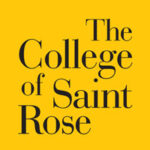
MSSW (on-campus)
Also Offers:
- BSW
The College of Saint Rose offers an MSSW program designed for both new graduates and career changers. With options for full-time and part-time enrollment, this program provides comprehensive training through a combination of rigorous academic coursework and extensive fieldwork. Saint Rose’s MSSW curriculum prepares graduates to serve as effective change agents in diverse environments. Graduates benefit from an exceptional employment rate thanks to strong faculty support and valuable connections with public and private organizations. Unique to Saint Rose is its focus on prevention and well-being across multiple domains, ensuring a holistic approach to social work education.
Siena College
School of Liberal Arts
Loudonville, NY

BSW (on-campus)
The Siena College BSW, part of the School of Liberal Arts, offers a comprehensive education designed to prepare students for a career in social work. Emphasizing both classroom learning and hands-on experiences, the program includes a 450-hour internship tailored to student interests in various settings such as schools, nursing homes, and mental health facilities. Siena’s social work curriculum focuses on developing communication skills and a deep understanding of social problems, enabling graduates to work effectively with diverse populations. The program, ranked in the top 20% nationally by College Factual, provides students with opportunities to engage in service learning through initiatives like the Levesque Institute for Civic Engagement and the Homeless Outreach Project. This experiential learning approach ensures that graduates are well-prepared for advanced studies or immediate entry into the social work field.
University at Albany, SUNY
School of Social Welfare
Albany, NY

MSW (online, hybrid, on-campus)
Also Offers:
- MSW/MA in Criminal Justice
- MSW/JD
- PhD in Social Work
The University at Albany’s School of Social Welfare offers a comprehensive and versatile MSW program, accommodating students through online, hybrid, and on-campus formats. Their dual degree options, such as the MSW/MA in Criminal Justice and MSW/JD, provide interdisciplinary approaches to social work education, enhancing career prospects in multiple sectors. Known for its commitment to social and economic justice, the school encourages active community engagement and offers rich research opportunities under the guidance of internationally recognized faculty. Students benefit from extensive field education partnerships and the university’s strong focus on social advocacy, demonstrated through initiatives like the annual Legislative Education Advocacy Day.
Social Work Degrees in Erie County

The news coming out of Erie County is grim, with providers of domestic violence services raising the alarm in response to a growing number of people reaching out for help. For example, in October 2023, the Family Justice Center of Erie County reported a spike in calls for help in response to domestic violence incidents, with CEO Catharine Miles-Kania calling the situation “unprecedented.”
The hope is that this uptick in calls actually reflects the success the Family Justice Center has had in getting the word out about available resources. Child and Family Services, operators of Haven House in Buffalo, reported a 14 percent increase in the number of people seeking shelter between 2022 and 2023.
In response to a persistent demand for services for domestic violence victims, Community Services for Every1 is preparing to open its first permanent housing complex in Buffalo for domestic violence survivors, with plans to staff the facility with skilled social workers.
For Erie County’s aspiring and practicing social workers, new programs like these offer outstanding opportunities to make a difference. To become part of the solution and serve as a valuable member of the organizations looking out for the most vulnerable people of Erie County, you’ll need the right degree — a BSW or MSW degree. Or both.
Making a Difference as a Social Worker in Erie County Begins with a BSW or MSW Degree
It’s entirely possible to get into the social work field in Buffalo and throughout Erie County with an undergraduate degree. But for anybody pursuing a job where they can work directly in client counseling or serve in other highly influential roles, the goal is to earn a Licensed Clinical Social Worker (LCSW) or Licensed Master Social Worker (LMSW) credential through the New York State Education Department. And that’s a goal that requires a Master of Social Work (MSW) degree.
With either credential, social workers in Eerie County serve their community through organizing, advocacy, and policy work, or in roles that involve performing clinical counseling. The major difference between the two credentials is that the LCSW permits holders to work directly with clients without any oversight, and this includes the ability to perform group and one-on-one counseling independently. As such, the LCSW requires about three years of supervised experience in diagnosis and psychotherapy as part of the licensure process.
Social Workers are Helping the Unhoused of Eerie County Find Safe Harbor
Erie County’s vexing homelessness crisis spiked in 2022 when pandemic protections like the Tenant Safe Harbor Act and Emergency Rental Assistance Program expired. Even in the years since, it’s shown no sign of slowing down.
In fact, a county spokesman confirmed that hundreds of homeless people were still being housed in the county shelter system. And as of 2023, about three hundred at-risk families — between 600 and 800 people — were regularly using services reserved for low income households.
But in April 2024, Erie County’s public and private sectors announced they were partnering up to implement a new program that’s been used successfully in cities across the country. The program, called Housing First, will place the chronically homeless in Erie County in permanent supportive housing. The plan includes developing a new building that will house about 50 people, along with about 100 other sites throughout the county. In addition to providing those experiencing homelessness with permanent housing, the program will also provide this population with support services through Safe Harbor Behavioral Health.
Whichever credential you pursue, there’s only one degree that will get you where you need to be: a Council on Social Work Education (CSWE)-accredited MSW.
But before you can earn the MSW, you’ll need to earn a bachelor’s degree that will prepare you for the kind of advanced study a mater’s degree delivers. Some get their start with a bachelor’s degree in a behavioral science field — anything from psychology to human services. That provides the perfect foundation for a two-year, traditional MSW program. However, earning a CSWE-accredited Bachelor of Social Work (BSW) provides a more streamlined path to the MSW, as most schools of social work in New York offer advanced-standing MSW options that BSW holders can complete in as little as one year.
CSWE-Accredited MSW and BSW Programs Serving Students in Buffalo and the Greater Erie County Area
In Erie County, options to earn your BSW and MSW include:
SUNY Buffalo State University
School of Arts and Sciences
Buffalo, NY

BSSW (on-campus)
SUNY Buffalo State University’s BSW offers a robust curriculum designed in a generalist practice lens that prepares students for both immediate professional opportunities and advanced graduate studies. The program emphasizes ethical practice, critical thinking, and advocacy for social and economic justice. Students benefit from small class sizes and hands-on experiential learning opportunities, including service learning, field practice, and community engagement projects. Unique to Buffalo State, the program integrates international social work experiences, allowing students to engage in meaningful research and intervention projects abroad, such as in Trinidad and Tobago. Graduates emerge well-equipped to make significant contributions to diverse communities and professional settings.
University at Buffalo, SUNY
School of Social Work
Buffalo, NY

MSW (online, hybrid, on-campus)
Also Offers:
- MSW/MPH
- MSW/MBA
- MSW/JD
- MSW/PhD
- DSW
- PhD in Social Welfare
The University at Buffalo’s MSW program offers unparalleled flexibility, allowing students to pursue their degree in online, hybrid, or on-campus formats. With dual degree options including MSW/BA in Health and Human Services, MSW/MPH, MSW/MBA, MSW/JD, and MSW/PhD, the program caters to diverse professional paths that intersect with social work. The School of Social Work also offers unique opportunities like the Hartford Partnership Program for Aging Education, micro-credentials in Excellence in Aging or Serious Illness Care, and specialized field placements across hundreds of agency partners. The program delivers comprehensive training that emphasizes trauma-informed and human rights perspectives, preparing graduates for impactful careers in social work right here in Buffalo and beyond.
Social Work Degrees in Monroe County
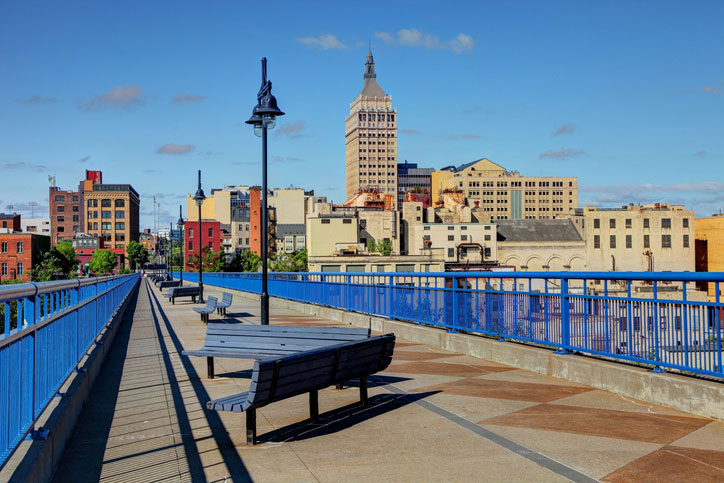
Monroe County is home to a host of outstanding opportunities to either kickstart your career in social work or explore new ways to be an agent for real change in this fulfilling profession. Plenty of county agencies like the Office of Children and Family Services, the Office for the Aging, the Office of Addiction Service and Supports, and the Department of Human Services employ their share of social workers, but so do big healthcare systems like the University of Rochester Medical Center and Rochester Regional Health.
Social workers are always on the payroll at schools throughout the county, including charter schools like the Rochester Academy of Science Charter Schools. They’re also important members of interdisciplinary healthcare teams at nursing homes and rehabilitation centers like Waterview Heights Nursing & Rehabilitation Center in Rochester and Wedgewood Rehab and Nursing Center in Spencerport. And they’re working tirelessly to help youth and their families at places like Pittsford Youth Services and in the county court system.
The Full Scope of Practice as a Monroe County Social Worker Comes Through an MSW and State Licensure
Though settings and job duties for social workers often vary from one employer to the next, education, qualifications, and licensure remain set in stone through the New York State Education Department, which oversees the credentialing for the state’s Licensed Clinical Social Workers (LCSW) and Licensed Master Social Workers (LMSW).
Whether you’re seeking the LCSW or the LMSW credential (the LCSW allows social workers to practice clinical counseling and requires an additional period of supervised experience in diagnosis and psychotherapy), you’ll need to earn a Council on Social Work Education (CSWE)-accredited Master of Social Work (MSW).
There are two paths that will take you to the MSW: (1) Earn a bachelor’s degree in a human services field and then complete a traditional, two-year MSW; or (2) earn a Bachelor of Social Work (BSW) that will qualify you for an advanced standing MSW that takes just one calendar year to complete.
Remembering Rev. Lewis Stewart, a Champion for Social Justice in Rochester
 On October 27, 2023, Rochester’s United Christian Leadership Ministry (UCLM) announced the passing of its president emeritus and co-founder, Rev. Lewis Stewart – religious leader and activist who used the power of words to fight for social causes aimed at economic and racial inequities.
On October 27, 2023, Rochester’s United Christian Leadership Ministry (UCLM) announced the passing of its president emeritus and co-founder, Rev. Lewis Stewart – religious leader and activist who used the power of words to fight for social causes aimed at economic and racial inequities.
Before co-founding UCLM in 2013, Rev. Stewart served as chaplain of the NYS Department of Corrections, where he counseled inmates while simultaneously advocating for prison reform. At UCLM, his fight for justice system reform continued. His work at UCLM between 2013 and 2022 was, by all accounts, incredibly successful, as he was able to implement a number of significant reforms to Rochester’s criminal justice system.
For example, he created the program that led to the implementation of body cameras for both the Rochester Police Department and the Monroe County Sheriff’s Office. He also helped form annual police and community summits that were designed to bring law enforcement and the community together to build bridges and engage in meaningful dialogue. And he developed and instituted a number of community programs that work to address gun violence and educate the community about the problem of gun violence.
Dr. Dwight Fowler, who succeeded Rev. Stewart as UCLM president in 2022, spoke of Rev. Stewart’s enduring legacy in Rochester, saying: “He was, as I am, a drum major for justice, and he wanted to do what he could to irradiate implicit bias, explicit bias, racism, oppression as one who operated as a liberator.”
CSWE-Accredited MSW and BSW Programs Serving Students in Rochester, Pittsford, Brockport, and the Greater Monroe County Area
Monroe County is home to three universities that offer both BSW and MSW programs:
Roberts Wesleyan University
Department of Social Work
Rochester, NY

MSW (online, on-campus)
Also Offers:
- BSW
Roberts Wesleyan University’s MSW program offers a comprehensive education with a specialized focus on Mental Health and Child/Family Services. The curriculum integrates a bio-psycho-social-spiritual-cultural perspective, encouraging self-awareness and critical thinking. Courses are delivered online in a synchronous, 15-week semester format, accommodating adult learners with late afternoon and evening classes. Students can choose between part-time and full-time options, with the standard program taking 24 to 48 months to complete, while the advanced standing program, for those with a BSW, ranges from 11 to 22 months. The intimate class sizes, with fewer than 20 students, ensure personalized attention from experienced faculty.
Nazareth University
Graduate of Social Work Program
Pittsford, NY

MSW (online, on-campus)
Also Offers:
- BSW
Nazareth University’s social work programs offer both BSW and MSW degrees with flexible formats to accommodate diverse student needs. The MSW program, available in both in-person and online formats, allows students to choose from specializations such as Play Therapy, Trauma-Informed Care, and School Social Work. Boasting an interprofessional approach, the program integrates experiential learning opportunities in collaboration with the York Institute for Wellness and Rehabilitation. Students gain practical experience through field education partnerships with over 250 agencies. The university also offers unique international opportunities, including study abroad trips to India, Jamaica, and Finland, which provide a global perspective on social work practice. Graduates of Nazareth’s MSW program boast a high employment rate, with 98% securing jobs within six months of graduation.
SUNY Brockport
Department of Social Work
Brockport, NY

MSW (on-campus)
Also Offers:
- BSSW
SUNY Brockport’s Department of Social Work offers robust BSSW and MSW programs designed to equip students with a broad skillset for work in diverse settings. The MSW program features both a 36-credit Advanced Standing track for recent BSW graduates and a 60-credit track for those from other disciplines. Students benefit from day and evening courses held in Rochester, and practical fieldwork is integrated throughout the curriculum. Field placements with more than 250 local agencies provide real-world experience in settings such as healthcare facilities, public health clinics, and mental health programs, ensuring graduates are well-prepared for clinical, supervisory, and administrative roles in various sectors.
Social Work Degrees in Nassau County

Homelessness isn’t a problem unique to Nassau County, but it’s certainly a persistent and pervasive issue that’s getting a lot of attention in Uniondale in recent months. As of July 2023, the deputy county supervisor for the county’s Department of Health and Human Services reported that efforts to help this at-risk population are falling behind.
Here’s why: In early 2022, the NYS Division of Housing and Community Renewal eliminated the Section 8 voucher contract from Nassau County and awarded it to the Community Development Corporation of Long Island (CDCLI), a local nonprofit. However, CDCLI is being less responsive to callers and hindering the process for many. While the county provides emergency housing for the unhoused population, they now don’t have the ability to connect them with long-term housing options.
As a result of this increase in unhoused citizens, Nassau County is restructuring its Homeless Intervention Team, which consists of small teams of people who provide the homeless with assistance wherever they are. They’ve also developed the Nassau County Mobile Crisis Team, which provides immediate assistance to individuals experiencing a mental health crisis.
Other nonprofits are also stepping in. For example, the Mary Brennan INN Soup Kitchen in Hempstead Village, largely considered one of the most successful nonprofits in the county, has begun working with Nassau County Social Services to help place unhoused families in shelters.
This growing effort to help the most vulnerable individuals and groups in Nassau County has become one of the reasons why social workers here and throughout NYC are in-demand. Meeting that demand with the right set of skills all starts with a BSW or MSW degree.
How to Earn the MSW That Will Make You a Force to Be Reckoned with In the Social Services Profession
Licensed social workers are critical to keeping the underserved and underrepresented people of Nassau County from slipping through the cracks. And the good news is they have an incredible network of state and county agencies directed at social welfare to help them do it.
Right here in Nassau County you’ll find Licensed Master Social Workers (LMSW) and Licensed Clinical Social Workers (LCSW) hard as work leading the programs offered through these agencies:
- NYS Office of Minority Health, which aims to secure high-quality, affordable healthcare for all New Yorkers
- Nassau County Department of Social Services, which seeks to preserve and strengthen families through assistance and resources
- Nassau County Veterans Service Agency
- Nassau County of Hispanic Affairs
- Nassau County Office of Asian American Affairs
- Nassau County Department of Human Services, which includes a number of offices for the most vulnerable, including the Office for the Aging; the Office of Mental Health, Chemical Dependency, and Developmental Disabilities Service; the Office for the Physically Challenged, and the Office of Youth Services.
Ruth Bader Ginsburg: Remembering a Champion for Women’s Rights
“Whatever you choose to do, leave tracks. That means don’t do it just for yourself. You will want to leave the world a little better for your having lived.”
~ Ruth Bader Ginsburg
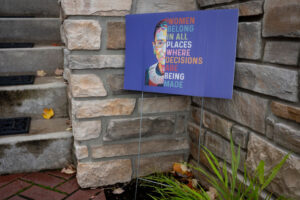 Known fondly as simply RBG by many, Ruth Bader Ginsburg is best known for being a progressive Supreme Court Justice — and the first Jewish woman, and only the second woman ever at the time she was appointed to hold this post. But it would be an injustice not to recognize her work that inspired the masses and advanced women’s rights.
Known fondly as simply RBG by many, Ruth Bader Ginsburg is best known for being a progressive Supreme Court Justice — and the first Jewish woman, and only the second woman ever at the time she was appointed to hold this post. But it would be an injustice not to recognize her work that inspired the masses and advanced women’s rights.
Some of that recognition came at the time of her passing in 2020 when Nassau County Executive Laura Currant conveyed the sense of loss we all felt at the time, saying, “Justice Ginsburg was an inspiration to countless women including me. I am privileged to have known her and my heart goes out to her children.”
RBG was born in Brooklyn, New York, in 1933 to a native New Yorker mother and an immigrant father. When she attended Harvard Law School, she was just one of nine women in a class of 500 students. She spent her last year of law school studying at Columbia and graduated at the top of her class in 1959.
She landed a position as a law clerk in the U.S. District Court for the Southern District of New York, followed by research associate at Columbia Law School and Professor of Law at Rutgers University School of Law. During this time, she became involved with the American Civil Liberties Union (ACLU) and was an important founding member of the Women’s Rights Project in 1971, where she served as a litigator and director. She was appointed to the U.S. Court of Appeal for the D.C. Circuit by Jimmy Carter in 1980 and served there for 13 years until she took her seat on the Supreme Court (nominated by President Bill Clinton) in 1993.
It was during her time on the Supreme Court that she fought for gender equality and women’s rights, including gender pay discrimination.
Becoming a licensed social worker in New York State – whether as an LMSW or eventually an LCSW – you need to earn an MSW that’s accredited by the Council on Social Work Education (CSWE).
You can certainly earn a bachelor’s degree in a related field like sociology, psychology, or community health counseling on your way to getting there, but there’s a more streamlined path to consider if you’re just getting started. By earning a Bachelor of Social Work (BSW) as your undergrad degree, you’ll be able to enroll in your MSW program as an advanced standing student, allowing you to complete the program in as little as a year. That can mean a significant cost and time savings, which is something any aspiring social worker can appreciate.
CSWE-Accredited MSW and BSW Programs Serving Students in Brookville, Garden City, Rockville Centre, and the Greater Nassau County Area
To help you along your journey, a number of universities in Nassau County offer CSWE-accredited BSW and MSW programs:
Long Island University, Post & Brooklyn Collaborative
School of Health Professionals
Brookville, NY

MSW (on-campus)
Also Offers:
- BSW
- PhD in Social Work
The Long Island MSW program is a unique collaboration between LIU Post (Brookville) and LIU Brooklyn, offering students courses, resources, services, and a coalition of faculty from both locations. This outstanding graduate program allows students to specialize in one of five areas: substance use and addictive behaviors; child and family welfare; forensic social work; gerontology; or nonprofit management. Varied fieldwork experiences ensure a well-rounded academic experience, and the design of the program’s curriculum also prepares students to earn the New York Certification in Alcohol and Substance Abuse Counseling (CASAC) designation and advanced state certification in forensic social work.
Adelphi University
School of Social Work
Garden City, NY (other locations including Brooklyn and Long Island)

MSW (on-campus, online, hybrid)
Also Offers:
- BSW
- PhD in Social Work
Adelphi University’s School of Social Work, a longstanding institution with a 70-year history, champions social justice and diversity through its top-ranked programs. With four convenient locations across New York State, Adelphi offers flexible learning options, including part-time, full-time, online, and in-person modalities for both its BSW and MSW degrees. The school’s commitment to community engagement is evident in its partnerships with over 1,000 human service agencies, offering students hands-on experience and valuable connections in the field. Students here participate in the school’s annual Social Action Initiative, where they engage in projects addressing critical issues like racism and discrimination.
Molloy University
School of Education & Human Services
Rockville Centre, NY (other locations include Manhattan and Farmingdale)

MSW (on-campus)
Also Offers:
- BSW
Molloy University’s collaboration with Fordham University’s Graduate School of Social Service offers a transformative Master of Social Work program designed to prepare students for impactful careers in the dynamic field of social work. Graduates are equipped to address complex social issues, making significant impacts in various settings, including mental health clinics, schools, and community organizations. The program’s robust curriculum and commitment to equity, inclusion, and social justice prepare students to pursue advanced studies or enter the workforce as well-rounded, generalist practitioners.
Social Work Degrees in Onondaga County

In Syracuse and throughout Onondaga County, the value of the social work profession is clear and apparent in the lives of every struggling family and any individual grappling with job loss or substance use disorder. The good works they do are what make governmental agencies like the Department of Social Services effective in reaching county residents with direct economic support — Bureaus within the DSS are aimed at services for the elderly, children and family services, civil rights, veterans services, mental health and more, all specialty areas within the domain of social work.
The important work social workers are doing throughout Onondaga County can also be seen in nonprofits like the Salvation Army and Catholic Charities, in the public school system, in the courts and corrections system, and in the hospital and healthcare systems serving the people of Syracuse and the broader Onondaga Country area.
The Syracuse Center for Peace and Social Justice Re-doubles its Commitment to Progressive Social Change
 Onondaga County’s social justice efforts are widespread and always growing. Agencies and organizations like the Syracuse Center for Peace and Social Justice provide platforms that bring communities together to rail against discrimination and injustice and achieve progressive social change.
Onondaga County’s social justice efforts are widespread and always growing. Agencies and organizations like the Syracuse Center for Peace and Social Justice provide platforms that bring communities together to rail against discrimination and injustice and achieve progressive social change.
The Center isn’t just an agency for social change. It serves as a landing spot for similar organizations looking to erase disparities in society and support the protection of rights for marginalized populations. These include:
- Workers’ Center of Central New York (WCCNY) – A community-based organization focused on building worker power and improving economic and workplace conditions. They address issues like fair wages and workplace safety by achieving structural and policy changes.
- Black Lives Matter Syracuse – The Syracuse chapter of Black Lives Matter is part of this major, abolition-centered foundation that seeks to eliminate institutional injustice again black people on a global scale.
- UNCHAINED – This nonprofit organization aims to create new and effective policies that break the cycle of incarceration.
- Public Citizen – This nonprofit consumer advocacy organization works to ensure that government works best for people and not big corporations. Some of the issues they focus on include the delivery of safe and affordable healthcare; citizen access to the courts; and corporate accountability in trade.
- AGREE – This organization advocates for a renewable energy-based economy. Through their Renewable Heat Now Campaign, AGREE works with organizations across the Empire State to find ways to eliminate fossil fuel heating.
- Syracuse Peace Council – This anti-war/social justice organization, which was founded about 90 years ago, seeks to create a world that’s free of war, violence, and exploitation.
- New York Immigration Coalition – This umbrella policy and advocacy organization represents more than 200 immigrant and refugee rights groups throughout the state. NYIC serves as a forum for voicing concerns and driving positive social change.
The Path to Serving the Communities of Onondaga County to the Fullest Extent Runs Through an MSW and State Licensure
It’s perfectly feasible to build a social work career in Syracuse on the back of a Bachelor of Social Work (BSW), and many do. It provides exceptional preparation for a lot of important work being done in the field every day. But to make the biggest impact in the field and enjoy the broadest range of career opportunities, you’ll want to earn a license that allows you to provide direct counseling services to people and families struggling with mental health disorders, substance use, and other behavioral problems. That means earning the Licensed Master Social Worker (LMSW) or Licensed Clinical Social Worker (LCSW) designation through the New York State Education Department. The primary difference between the two being that the LCSW allows for independent practice and the provision of clinical counseling services, while LMSW-holders must be supervised when working in this capacity.
Whether you pursue the LMSW or the LCSW, there’s only one degree that will get you there: the Master of Social Work (MSW). More specifically, you’ll need to earn an MSW that’s accredited by the Council on Social Work Education (CSWE). For many, that path begins by earning a BSW. Although you can also qualify for admission into a traditional MSW by earning a bachelor’s degree in psychology or almost any other human services-related field, the BSW is often the degree of choice, as it affords graduates the opportunity to qualify for advanced standing admission in MSW programs. This cuts the time it takes to earn the degree down to just one year, versus two years for a traditional MSW.
CSWE-Accredited MSW and BSW Programs Serving Students in Syracuse and the Greater Onondaga County Area
In addition to the online social work degree programs now widely available in Onondaga County, Syracuse University offers both a BSSW and MSW:
Syracuse University
David B. Falk College of Sport and Human Dynamics, School of Social Work
Syracuse, NY

MSW (online, on-campus)
Also Offers:
- BSSW
- JD-MS in Social Work
Syracuse University’s School of Social Work, part of the Falk College, offers a dynamic MSW program with both online and on-campus options. Students can choose between Advanced Clinical Practice and Advanced Integrated Practice tracks, preparing them to work in a wide range of professional settings. The BSSW program provides undergraduates with a strong foundation in generalist social work practice. Syracuse’s comprehensive curriculum is complemented by extensive field placement opportunities with nearly 200 human service agencies, ensuring that students gain practical experience that prepares them well for the road ahead.
Social Work Degrees in Rockland County

Social workers in Rockland County are hard at work, putting all the solutions-oriented thinking and problem solving skills they developed through years of education and experience to the test every day. This level of dedication has led to lasting changes that have helped level the playing field and ensure the county’s at-risk and underserved residents get every opportunity to lead healthy, productive lives, regardless of their economic status.
Child welfare has long been a focus of many professionals in social work, with many working in the courts, child protective services, and schools to ensure children have access to the services and resources vital to healthy development and overall well-being.
Interdisciplinary Support Teams Bring Social Workers Into the Fold to Help Underprivileged Kids and Teens in Rockland County
In the East Ramapo Central School District, social workers are vital members of interdisciplinary support teams that also includes principals, teachers, psychologists, nurses, and guidance counselors. And as of the 2022-23 school year, the school district began building upon its current social worker workforce and expanding the services they provide.
Since this expansion project, the school district now has eight social workers, along with three college interns, who address pressing issues like mental health and behavioral concerns, chronic absenteeism, and traumas. School social services support teams also help families connect with outside resources and services, including childcare, employment, health insurance, food pantries, and more.
Whether you want to do your part within the school system or become an integral component of other vital social services, it’s an exciting time to become a social worker in Rockland County. But before you can become part of the solution, you’ll need the social work degree that will make you a serious contender for some of the most rewarding jobs in the world.
Earning the BSW or MSW That Will Make You a Force in Rockland County’s Social Services Community
Social work in Ramapo and throughout Rockland County isn’t just reserved strictly for those with advanced degrees and state licensure. But if you want to become an influential presence in the practice of social work, either as a clinical practitioner or in areas like legislative advocacy, program development, and leadership, you’ll want to make earning either the Licensed Master Social Worker (LMSW) or Licensed Clinical Social Worker (LCSW) credential through the New York State Education Department part of your career path.
Which credential should you choose?
Both licenses give you the broadest scope of practice possible in the field, allowing you to provide clinical diagnoses and treatment to people and families struggling with mental and emotional problems, along with behavioral issues including substance use disorder. The biggest difference is whether you’ll want the freedom to provide those clinical counseling services independently. In this case, you’ll want to earn the LCSW, which requires about three additional years of supervised experience performing diagnoses and psychotherapy after earning the LMSW.
Whichever credential you choose, you’ll need to earn the same level of education: the Master of Social Work (MSW) through a program that’s been accredited by the Council on Social Work Education (CSWE).
Most programs admit students with undergrad majors in psychology or any other human services major. But for those who have earned a Bachelor of Social Work (BSW) specifically, the process of earning the MSW is much more streamlined. In most cases, students who have completed a CSWE-accredited BSW can qualify for advanced-standing admissions and earn their MSW in just one calendar year instead of two.
Social Workers are Hard at Work Championing Equality in Ramapo and Throughout Rockland County
 Rockland County is no stranger to social justice causes, and people here are committed to advocating for the rights of the underserved, marginalized, and underrepresented. Just some of the groups working to create a brighter future for all citizens of Rockland include:
Rockland County is no stranger to social justice causes, and people here are committed to advocating for the rights of the underserved, marginalized, and underrepresented. Just some of the groups working to create a brighter future for all citizens of Rockland include:
Rockland United Community for Social Justice – Members of New York’s 17th Congressional District work to combat civil or governmental actions that threaten the civil rights and personal protections of its citizens. Just some of their efforts include outreach, events, community alliances, and fundraising. This organization describes itself as “anti-racist, pro-patriotic, pro-immigrant, inclusive, and peaceful.”
NAACP, Nyack Branch – The Nyack Branch of the NAACP, which encompasses Clarkstown, Haverstraw, Orangetown, and Stony Point, has fought for freedom and justice in education, youth work, housing, health, civic engagement, and economic development in Rockland County since 1928.
Human Rights Commission – The Rockland County Commission on Human Rights is dedicated to investigating unfair and illegal practices related to housing, employment, race, creed, age, national origin, marital status, sexual orientation, gender/sex, and/or disability.
CSWE-Accredited BSW and MSW Programs Serving Students in Blauvelt and the Greater Rockland County Area
Dominican University New York is the only university with a physical presence in Rockland County that offers both a bachelor’s and master’s degree in social work. Nearby, the NYC metro area is home to many CSWE-accredited programs available both online and on-campus, including Fordham University in Manhattan, Long Island University in Queens, and Touro University in Brooklyn.
Dominican University New York
Division of Social Sciences
Blauvelt, NY

MSW (on-campus)
Also Offers:
- BASW
- PhD in Social Work
Dominican University New York offers a dynamic MSW program with the kind of flexibility that helps ensure the success of every single student who attends. Students can choose from traditional full-time or part-time options, with additional opportunities for advanced standing for those who come into the program with a BSW. The University fosters a close-knit student and faculty community through small personalized classes, ensuring strong relationships between students and faculty. The scenic Hudson Valley campus provides a peaceful setting that’s just 17 miles from New York City. Dominican’s BASW program also emphasizes a comprehensive education with extensive fieldwork opportunities, preparing students for impactful careers in social work.
Social Work Degrees in Suffolk County

The proof is everywhere you turn. There’s a growing need for BSW and MSW-prepared social workers in Suffolk County to provide the most vulnerable people with social services designed to improve lives and even save them.
For example, in February 2024, Suffolk County officials reported major delays in processing applications for food stamps and other assistance programs. The reason? A severely understaffed Department of Social Services. In some cases, residents here waited months to receive the help they needed.
Though federal law entitles eligible households to receive food stamp benefits within 30 days of filing, the NYS Welfare Management System reported that Suffolk County failed to process at least one thousand Supplemental Nutrition Assistance Program (SNAP) applications within the 30-day deadline. At one point in the year, nearly half of all applications had exceeded the 30-day mark.
Increased caseloads and staffing shortages aren’t new to the social services field, with many agencies and organizations desperate for qualified help.
In June 2024, Suffolk County’s Labor Department hosted a job fair for the Department of Social Services. Some of the positions they were looking to fill included social service examiners, child support specialist trainees, and caseworker trainees.
It’s an outstanding time to get your education and credentials in place. With a BSW or MSW degree, you can begin making a positive, lasting difference in the lives of Suffolk County residents experiencing homelessness, food insecurity, domestic violence, mental health and substance abuse issues, and more.
Your Future Starts Here: BSW and MSW Programs That Will Jumpstart Your Career in Social Work
Are you ready to take a big step in your career and become a clinical social worker in Suffolk County? If the answer is a resounding “yes!”, then it’s time to learn more about the education requirements you’ll need to become a credentialed social worker in New York State.
Whether you hail from Long Island or Manhattan or Upstate New York somewhere, you’ll need to hold the same credential to practice as a clinical social worker in New York State.
The New York State Education Department is the agency that credentials both Licensed Clinical Social Workers (LCSW) and Licensed Master Social Workers (LMSW). It’s a two-step licensure process that includes first earning a Master of Social Work (MSW) to achieve the LMSW credential and then completing a three-year period of documented supervised experience in diagnosis and psychotherapy if you choose to go on and earn the LCSW credential.
Literary Trailblazer: Alice Walker’s Enduring Influence
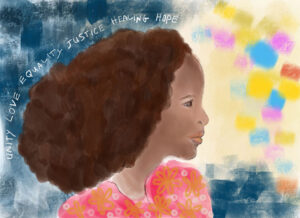 Alice Walker wasn’t just a critically acclaimed author – her work became symbolic of the Civil Rights movement and equality for African Americans. That enduring legacy has a monument of sorts right here in Long Island, in the place where Walker was laid to rest in Center Moriches in 2012.
Alice Walker wasn’t just a critically acclaimed author – her work became symbolic of the Civil Rights movement and equality for African Americans. That enduring legacy has a monument of sorts right here in Long Island, in the place where Walker was laid to rest in Center Moriches in 2012.
An experience she had as a young woman led Walker to consider her work not just as a poet and writer, but as an activist:
“I was ordered immediately to the back of the bus because a white woman complained to the white bus driver…. I had been writing poetry since I was nine, but I realized I would never have the luxury of only writing poetry; that I would have to be politically active in order to achieve enough freedom to write at all.”
Her third novel, The Color Purple, the story of Celie, a poor, uneducated, fourteen-year-old black girl living in rural Georgia, became an immediate success, earning her both the Pulitzer Prize and the National Book Award in 1982. This novel, like many of her other writings, shone a light on African American history and culture, particularly for women.
The Color Purple was then adapted for film, becoming a blockbuster 1986 film starring a number of big names, including Danny Glover, Whoopi Goldberg, and Oprah Winfrey, who won an Academy award for her role.
And then in 2005, it took Broadway by storm, debuting as a musical that ran until 2008, earning eleven Tony Award nominations. Years later, it enjoyed a revival, opening again in 2015 and running through 2017. During this time, it won two Tony awards, including the Best Revival of a Musical.
That means that an MSW accredited by the Council on Social Work Education (CSWE) is a fundamental step toward licensure in New York.
There are two, major paths that you can take to earn the MSW:
(1) Earn a bachelor’s degree in a human services field like psychology, sociology, or mental health counseling and then complete a traditional, two-year MSW.
OR
(2) Earn a CSWE-accredited Bachelor of Social Work (BSW) and take a shorter path with a one-year MSW.
While both routes prepare you for licensure as an LMSW and LCSW, the BSW is designed to qualify you for an advanced standing MSW program, which takes just 12 months to complete.
CSWE-Accredited BSW and MSW Programs Serving Students in Patchogue, Stony Brook, Brentwood, and the Greater Suffolk County Area
Whether you’re just starting out or well on your way to the MSW, Suffolk County, Long Island is home to a couple premier CSWE-accredited BSW/MSW programs:
St. Joseph’s University of New York
Master of Social Work Program
Patchogue, NY
(Other location in Brooklyn)

MSW (on-campus, hybrid)
The St. Joseph University of New York’s MSW is designed to prepare students for impactful careers as generalist and clinical practitioners. Emphasizing social justice, diversity, and community empowerment, the program aligns with the values of the Sisters of St. Joseph, focusing on service and advocacy for those in need. The MSW program provides flexibility with full-time, part-time, day, evening, weekend, and online classes. Students gain practical experience through two internships, positioning them for diverse career opportunities in government, counseling, healthcare, and social services. With a curriculum rooted in ethical practice and professional development, graduates are well-equipped to address individual and community needs.
Stony Brook University SUNY
School of Social Welfare
Stony Brook, NY
(Other location in NYC)

MSW (on-campus)
Also Offers:
- BSW
- MSW/MA in Medical Humanities, Compassionate Care and Bioethics
- MSW-MPH
- MSW-JD
- PhD in Social Welfare
The School of Social Welfare at Stony Brook University offers an array of programs, including a BSW, MSW, and several dual-degree options, including an MSW/MA in Medical Humanities, MSW/MPH, and MSW/JD. The MSW program, available on-campus, prepares students for advanced practice with a focus on social change and reform. Students can specialize in areas like community, policy, and integrated health as they gain practical experience through partnerships with community agencies. The dual-degree programs allow for interdisciplinary studies, enhancing career opportunities in fields like public health and law.
Long Island University, Post & Brooklyn Collaborative
School of Health Professions
Brentwood, NY

MSW (on-campus)
Also Offers:
- BSW
- Doctorate of Social Welfare
Though the main campus location for LIU University is in Nassau County, it also has a satellite campus right here in Brentwood, Suffolk County.
Social Work Degrees in Westchester County

Westchester County leaders are hard at work, creating and implementing programs aimed at preventing homelessness, and they’re relying on BSW and MSW-prepared social workers to get it done.
The Westchester Department of Social Services (DSS) has helped more than 200 individuals and families in the county get connected with permanent homes through the Emergency Housing Voucher (EHV) program. The EHV program has been able to make a serious dent in homelessness throughout the county in recent years, with Westchester currently leading all New York counties for its use of the EHV program to prevent homelessness.
Some of the people helped through this program include those fleeing domestic violence, sexual assault, human trafficking, and dating violence, along with people who were either recently unhoused or are at a high risk for homelessness.
The county’s high success rate is due, in part, to its partnership with WESTHAB, a nonprofit agency that develops affordable housing, runs homeless shelters, and operates a number of initiatives aimed at youth and employment programs.
DSS workers also provide individuals in the EHV program with a follow-up care program that connects them with dozens of community agencies to ensure their continued success.
From county agencies like DSS to nonprofits like WESTHAB, Westchester County is home to a host of human services agencies and organizations that hire graduates of local social work degree programs. Making your mark in child welfare, substance abuse treatment and prevention, immigration, mental health, unhoused services and more all starts with a BSW or MSW degree.
The Bachelor of Social Work (BSW) has become the standard entry point into professional social work and is a great way to prepare for key jobs in the field. But if you want to practice clinical social work, working one-on-one and in group counseling to support people through trauma or addiction, you’ll need a state license and a Master of Social (MSW) to get you there.
From Student to Licensed Social Worker: Earning a BSW or MSW in Westchester County
There’s plenty of paths to becoming a social worker in Yonkers and elsewhere in Westchester County. But the one most traveled for career-focused social work professionals in it for the long haul involves earning the Licensed Master Social Worker (LMSW) or Licensed Clinical Social Worker (LCSW) credential through the New York State Education Department.
Both credentials prepare you to work at the micro-level, providing clinical counseling services and talk therapy, and both also allow you to serve in macro and mezzo areas related to the kind of community advocacy, program development, and policy work that takes place in Westchester County every day.
The big difference is that the LCSW lets you perform vital clinical services, including diagnosis and direct counseling without supervision. And it’s that extra level of responsibility and accountability that makes it a two-step licensure process, which starts by earning the LMSW before completing about three years of supervised experience in diagnosis and therapy before qualifying for the LCSW.
The New York Society for Ethical Culture Has a Long Legacy that Touched Westchester County
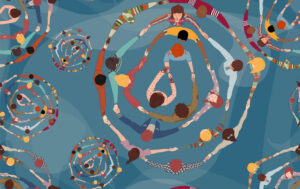 Part school of thought, part political movement, part religion, the New York Society for Ethical Culture (NYSEC) has been working toward the advancement of social justice for all since 1876.
Part school of thought, part political movement, part religion, the New York Society for Ethical Culture (NYSEC) has been working toward the advancement of social justice for all since 1876.
Founded by Dr. Felix Adler, described as both “visionary and revolutionary,” NYSEC began as an idea to promote ethics in social work through education and to serve as a forum through which members could express their religious consciences through moral and human actions.
Dr. Adler and his followers quickly got to work, initiating two projects in 1877: the District Nursing Service (now the Visiting Nursing Service), and the founding of the first free kindergarten in the United States. Just three years later, the Workingman’s School was chartered and five years later, it was reorganized to become the Ethical Culture School.
But Adler didn’t stop there. His vision included improving the living conditions in tenement houses, founding the Blythedale Children’s Hospital in Westchester County, which became New York’s only independent specialty children’s hospital. He later founded the Down-Town Ethical Society, which eventually grew to establish everything from libraries to educational classes to employment bureaus.
True to their word on advancing social justice, the Society hired a woman to become its associate leader and eventually became a platform for civil rights. In 1909, they signed a petition to create the National Association of Colored People (NAACP). Adler went on to serve on the National Urban League’s executive committee in 1910.
Adler’s death in 1933 wasn’t the end of the great work he started. Instead, he left behind a legacy that included leaders like John Lovejoy Elliott, who helped found the National Civil Liberties Bureau, and Algernon D. Black, who founded the Encampment for Citizenship, a program for adults to engage in activism and volunteerism.
Throughout the years, the NYSEC has been involved in major movements aimed at helping the homeless, addressing issues of war, repealing the death penalty, and promoting women’s rights — including their right to healthcare through the establishment of many Planned Parenthood clinics in NYC. They’ve even partnered with the Innocence Project to help free wrongfully accused prisoners and organizations like Amnesty International and the ACLU to promote the social good.
For either license, you’ll need a Master of Social Work accredited by the Council on Social Work Education (CSWE). You can prepare yourself for the MSW in one of two ways:
- Traditional two-year MSW - Earn a bachelor’s degree in a human services field, which can include anything from public health to psychology. This route prepares you for a traditional MSW that takes about two years to complete.
OR - Advanced-standing on-year MSW - Earning a CSWE-accredited BSW lets you qualify for advanced-standing admissions. Enrolling in an advanced-standing MSW means you can have your MSW in hand in as little as one year.
CSWE-Accredited BSW and MSW Programs Serving Students in New Rochelle, Dobbs Ferry, West Harrison, and the Greater Westchester County Area
In addition to the many online options available to you, Westchester County is home to two schools offering CSWE-accredited BSW programs and one that offers an MSW to get you started on the path to becoming a licensed social worker in New York:
Iona University
Social Work and Marriage and Family Therapy Department
New Rochelle, NY
(other location in Bronxville)

BSSW (on-campus)
Iona University’s BS in Social Work program stands out for its high ranking and value in the greater New York metropolitan area. This program offers an exceptional education rooted in the liberal arts, focusing on the knowledge, skills, and values of social work. Students benefit from small class sizes, personal attention from a dedicated faculty, and a student-centered learning environment. It also includes two field practicums totaling 500 hours of hands-on experience, with placements in diverse settings such as foster care agencies, substance abuse programs, and schools. Graduates are well-prepared for advanced standing admissions to CSWE-accredited MSW programs, or to transition to the workforce with a competitive edge. Opportunities for internships at top-ranked hospitals like New York-Presbyterian prepare students with real-world skills, and the university’s commitment to interprofessional collaboration ensures a well-rounded education.
Mercy University
School of Social & Behavioral Sciences
Dobbs Ferry, NY (other locations include Manhattan and Bronx)

BSW (on-campus)
Mercy University’s BSW prepares students for impactful careers through a robust curriculum and extensive fieldwork opportunities. With campuses across New York (including two in NYC), the program emphasizes practical experience, requiring students to complete internships in diverse settings such as mental health clinics, hospitals, and substance abuse programs. The program’s faculty of experienced practitioners serve as mentors who help guide students through their academic journey. Graduates are well-equipped to enter the workforce or pursue advanced studies, with many continuing their education in MSW programs. Mercy’s BSW program stands out for its commitment to service and social justice, preparing students to make a meaningful difference in the lives of individuals and communities.
Fordham University
Graduate School of Social Service
West Harrison, NY

BASW
Also Offers:
- MSW
- MSW/JD
Though the main campus location for LIU University is in NYC, it also has a satellite campus right here in Westchester County (West Harrison).
